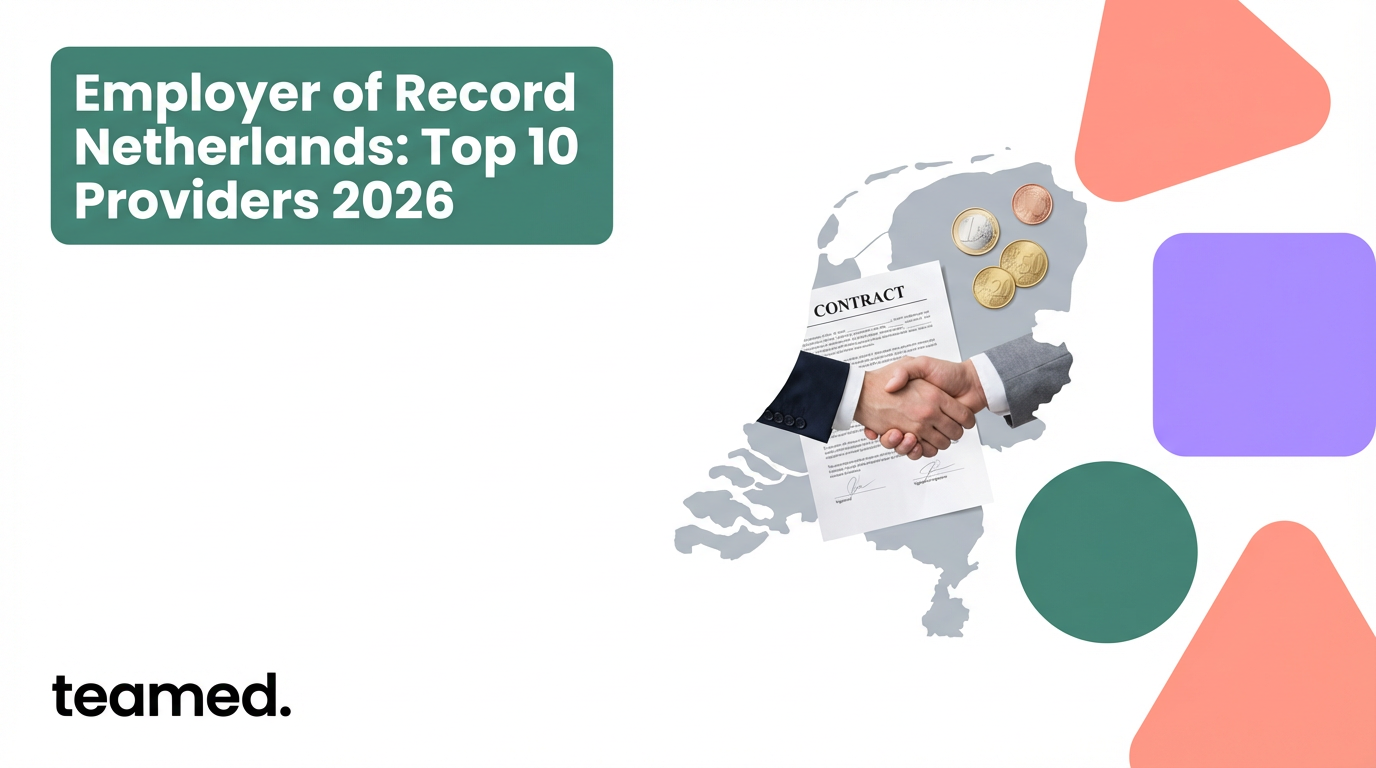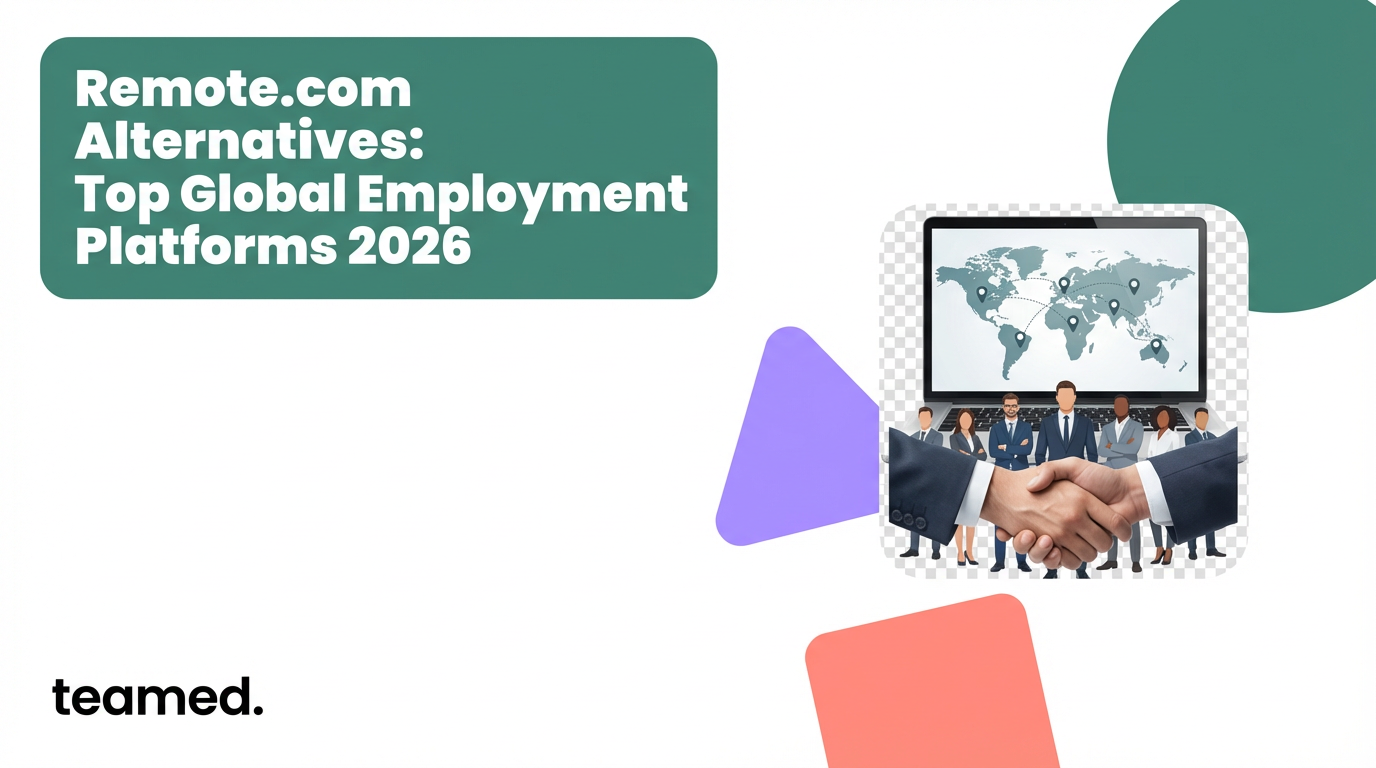The Netherlands holds a strategic position at the heart of Europe, making it a launching pad for accessing broader EU markets. Boasting a $1 trillion economy set to grow at 2.9% and a multilingual, highly-educated workforce, the Dutch labour landscape is ripe with opportunities for global businesses.
The Dutch job market is a treasure trove for companies eyeing European expansion. This guide aims to simplify your journey through the Dutch employment terrain.
Understanding Dutch Labor Laws and Regulations
For those new to the Netherlands, the Dutch employment legislation can appear overly complex. Grasping the pivotal regulations is crucial for seamless compliance and onboarding.
Employment Contract Types
The Netherlands recognises various forms of employment agreements, each carrying its unique protocols and implications:
- Fixed-Term Contracts: Typically lasting 1-2 years, these contracts provide flexibility for both parties but lack long-term job assurance. After two renewals, fixed-term contracts transition into permanent agreements.
- Indefinite/Permanent Contracts: While these contracts guarantee job security, they come with rigorous termination and severance procedures. Dismissing an employee under this contract demands substantial evidence and a thorough process.
- Zero-Hour Contracts: These on-call contracts offer adaptable working hours but might exclude certain perks like paid holidays or sick leave.
- On-Call and Seasonal Contracts: Tailored for short-term staffing or industry-specific seasonal demands.
Minimum Wage and Working Hours
The Netherlands is stringent about workforce welfare, mandating employers to meet certain standards.
- The set monthly minimum wage is €1,756 for those 21 and over, and €1,402 for the 18-21 age bracket. These figures undergo periodic revisions by the Dutch government
- A standard full-time work week spans 38 hours, capping daily work at 12 hours. Overtime shouldn't exceed 12 hours weekly, averaged over a month.
- Legally, employees are entitled to a minimum of 20 paid holidays annually, in addition to ten public holidays. The country also provides provisions for sick leave, maternity/paternity leave, and short-term caregiving.
Probation Periods and Termination Protocols
Probationary periods usually last 1-2 months, depending on the contract's duration, serving as a mutual evaluation phase.
- Terminating employees requires adherence to specific protocols and valid reasons.
- For instance, a series of warning letters and performance improvement plans might precede a dismissal.
- Moreover, the law mandates a severance pay equivalent to a month's salary for each year of service, capped at either €88,000 or a year's salary, whichever is higher.
Dismissing without adhering to the proper procedures can result in penalties, legal actions, and a tarnished reputation.
The Role of Works Councils
Works Councils stand as representatives of employee interests, liaising with management on policies affecting the staff.
- Major company decisions, be it restructuring, benefits alteration, or operational changes, must be presented to these councils.
- Endowed with binding advisory rights on financial and operational matters, Works Councils wield significant influence over managerial decisions.
They act as the workforce's collective voice, overseeing operations and mediating employee disputes.
The Hiring Process in the Netherlands
To tap into the top-tier talent in the Dutch labour market, an effective hiring strategy is essential. Here are some best practices to follow:
Defining Open Roles
- When defining open roles, clearly outline the critical responsibilities, required qualifications, skills, experience level, and salary range.
- Ensure the role aligns well with your company's overall goals, culture, organizational structure, reporting relationships, key performance indicators, and scope for career progression.
- Distinguish between essential qualifications and added advantages for the role.
Crafting Compelling Job Postings
- When crafting job postings, highlight the must-have qualifications, skills, experience levels, and salary ranges upfront to attract qualified candidates
- Also include interesting details that provide insights into your work culture, employer brand, career growth opportunities, company values, and overall mission to entice suitable applicants.
- Specify all the pertinent employment terms like benefits, work hours, leave policies, and flexible work arrangements.
Advertising on Relevant Platforms
- Broaden your reach by featuring on global platforms popular among Dutch job seekers, such as LinkedIn, Monsterboard, Indeed, and CareerBuilder.
- Promote openings via popular local social media platforms.
- If your roles are in specialized industries, consider print ads in industry-specific Dutch publications and newsletters.
Screening and Shortlisting Candidates
- When screening applicants, thoroughly review all applications against the mandatory qualifications and requirements indicated in the job posting to identify suitable candidates.
- Verify the accuracy of the information provided by shortlisted candidates through reference checks and deeper questioning.
- Then, shortlist only the most promising and relevant candidates for further assessment stages.
Conducting Interviews
- When conducting interviews, structure them to include insightful case studies, skills assessments, and behavioural and situational questions that effectively test the candidates' capabilities.
- Focus on evaluating each candidate's relevant competencies over their formal qualifications or academic credentials.
- Promote openness during the interactions to put candidates at ease but avoid direct, blunt questioning that may unintentionally cause confrontation or conflict.
Legal Obligations and Responsibilities
When hiring in the Netherlands, knowing the applicable regulatory requirements and standard employment terms is essential for ensuring a compliant, ethical work environment.
Company Registration
Registering appropriately with the Dutch Chamber of Commerce is mandatory for legally operating any business in the Netherlands.
Tax registration enables compliance with all regulations for corporate income tax, payroll tax, VAT, and other applicable taxes. Financial accounting and reporting must adhere to Dutch GAAP standards.
Work Permits and Visas for Foreign Hires
For foreign hires, EU citizens can work freely after registering for the appropriate residency permit with local Dutch authorities.
However, non-EU citizens require an employer-sponsored work visa to be legally employed - popular options are the Highly Skilled Migrant program which targets experienced professionals earning €4,752+ gross monthly.
The visa application involves extensive paperwork, documentation, and fees of up to €1,700 per applicant.
Payroll Taxes and Social Security
Payroll taxes and social security contributions form a significant part of labour costs. Personal income taxes range from 37-49% levied on progressive income slabs.
With pension, unemployment, and healthcare contributions factored in, total social security costs can amount to ~31% of an employee's salary, shared between employer and employee.
Payroll tax filings and payments are made monthly or quarterly, depending on the specific tax.
Employee Benefits
There are several mandatory employee benefits and time-off allowances in the Netherlands. These include the following:
- 20 holiday days annually
- Ten public holidays yearly for full-timers
- Sick pay at 70% of the salary for up to two years
- Pension contributions to the ABP pension fund
- Subsidised, income-based health insurance premiums.
Navigating the Dutch Recruitment Landscape
Connecting with the right talent requires awareness of the well-known hiring avenues and practices commonly utilized in the Netherlands:
Recruitment Agencies and Headhunters
Recruitment agencies provide employers access to large databases of pre-screened, qualified candidates, saving significant time and effort in the hiring process. Such can be especially useful for filling specialized or hard-to-fill roles like:
- IT-focused roles
- Finance
- Engineering
- Development
- Construction
Experienced headhunters further leverage their extensive networks to source highly skilled, passive candidates who may be open to considering new opportunities.
Established recruitment firms like Randstad, ManpowerGroup, and Adecco have solid local talent pipelines in the Dutch market.
Online and Social Hiring Platforms
Mainstream online job boards like Monsterboard and Nationale Vacaturebank are popular among Dutch job seekers and provide employers with high visibility and extensive candidate reach.
Paid advertising tools like GeoClick, Google Ads, and Facebook ads further enable tailored demographic and geographic targeting for niche roles.
Networking Events and Referrals
Attending relevant industry conferences, seminars, and networking events provides employers with face time with professionals to make direct connections.
Dutch trade associations and university alums networks help source employee referrals through their extensive membership bases.
Implementing an employee referral reward program can further incentivize harnessing internal connections and networks.
Overcoming Language and Cultural Barriers
When integrating foreign employees, it is important for employers to accommodate language needs and respect local Dutch cultural values.
Importance of Language Proficiency
Fluency in English and Dutch is highly desired to enable smooth communication and integration in Dutch workplaces.
Offering Dutch language training to new expat hires can help them in their job and long-term settlements in the Netherlands. For customer-facing roles, predominantly, native-level Dutch language proficiency is often mandatory.
Nuances of Workplace Culture
Compared to other cultures, the Dutch business environment tends to be relatively informal, relaxed, and focused on maintaining a positive work-life balance.
The cultural values of openness, direct communication, and pragmatic thinking prevail in most Dutch work interactions. However, aggressive confrontation is frowned upon.
Equality, collaboration, consensus-building, and transparency are highly prized, reflecting the country's broader cultural ethos.
Leveraging an Employer of Record
While the thriving Dutch job market offers rich opportunities, the regulatory complexity and hiring intricacies can seem daunting to new foreign employers.
This is where leveraging the expertise and networks of an established Employer of Record (EOR) can make a strategic difference, enabling you to focus entirely on core business growth and optimizations.
As your legal employer, an EOR like Teamed handles all aspects of compliance, recruitment, payroll, and HR based on specialized local experience. By relying on an EOR for your Netherlands launch, you gain instant access to top talent and resources.
“Teamed made it easy to grow globally. The ongoing support has been incredibly valuable!” - Kleodora Brahimi HR Manager, Velez Managed Services
Ready to book a call to discuss your global hiring needs - it’s easy through here.







